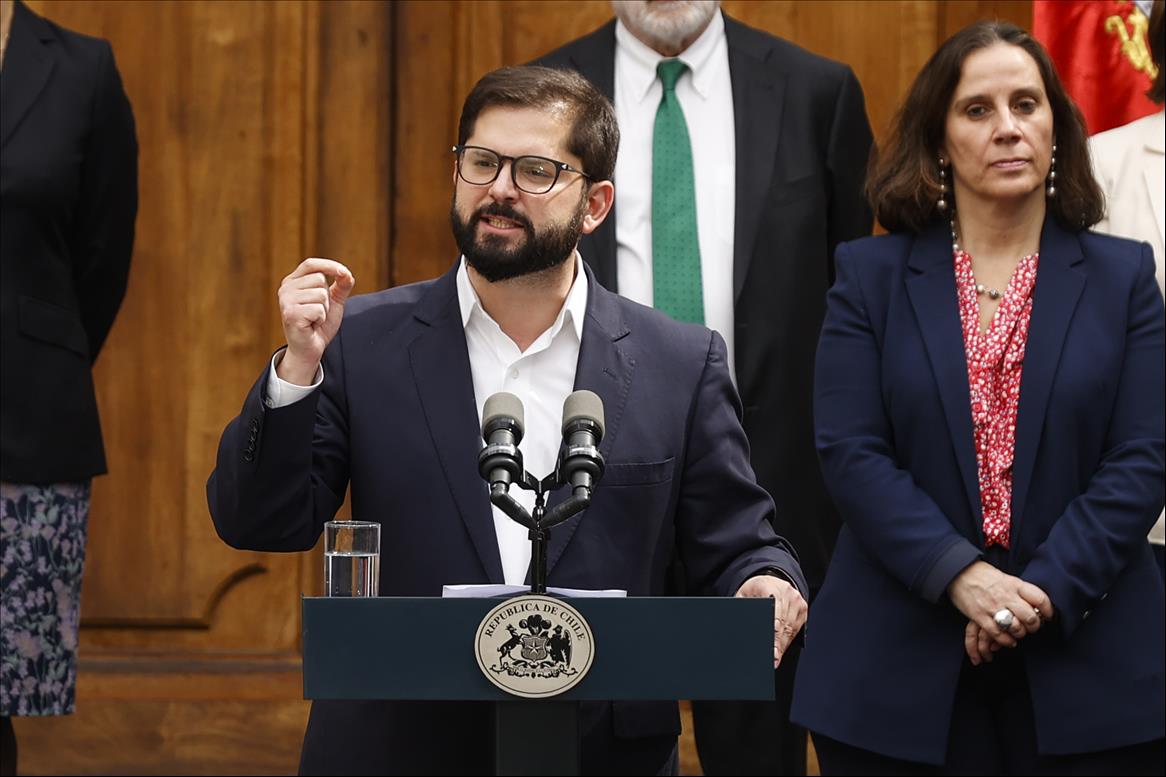
Chile's Progressive New Constitution Rejected By Voters After Campaign Marred By Misinformation
Despite recently electing Chile's most progressive president in the shape of former student protest leader Gabriel Boric , voters in the country have now rejected his most important reform. A plebiscite held on September 4 to replace the constitution imposed during the dictatorship of Augusto Pinochet with a progressive new one led to a solid no vote. This has effectively halted Boric's agenda for reform.
The final ballot stood at 62% rejecting (Rechazo) the proposed document and just 38% approving (Apruebo). It was a result that directly contradicted the initial plebiscite held in 2020 when 78% of voters backed the idea of a new constitution, after which Eliza Loncon, an indigenous left-wing academic was elected to oversee a constitutional convention to write the document.
Read more: Chile: election of progressive indigenous academic to oversee constitutional reform is a blow to right-wing establishment
The decision to rewrite the constitution came after months of political upheaval in 2019-20 caused by a crisis of inequality. Protests over metro fares in the capital, Santiago, developed into a mass social movement encompassing feminists, environmentalists, indigenous groups and anti-neoliberal activists calling for progressive socioeconomic change.
The new document was certainly radical , with a range of political and social reforms guaranteeing a range of social rights including housing, social security, health, work and access to food. There was also a range of proposed environmental reforms making fighting climate change a state duty and requiring the state to protect biodiversity, native species and natural spaces.
Political reforms included an element of direct democracy, gender parity, indigenous rights and a restructuring of the bicameral parliamentary system to give the Chamber of Deputies (the lower house) more power at the expense of the Senate.
Conceding defeat, Boric said :“I'm sure all this effort won't have been in vain, because this is how countries advance best, learning from experience and, when necessary, turning back on their tracks to find a new route forward.”
The“no” vote has not only halted the implementation of a new constitution, it has also forced a cabinet reshuffle. Boric has removed some of his more progressive ministers, including former interior minister Izkia Siches , a doctor of indigenous descent who helped shape Chile's pandemic response.
In place he has brought in figures from Chile's traditional political class such as Carolina Toha , a minister in former president Michelle Bachelet's first administration. This hints at a shift toward centrist politics.
As such, the newly elected president seems increasingly fragile and politically isolated, with a much-reduced mandate.
Many commentators have been baffled by the referendum result, wondering how citizens that had galvanised across the nation for political change, have settled for a constitution enacted by one of Latin America's most brutal dictators.
Fearmongering and misinformationFake news became a defining feature of the“rechazo” campaign which, in turn, the mainstream Chilean media was more than happy to amplify for clicks and views. One such story, propagated by far-right politician Felipe Kast who Boric defeated in the 2021 election, claimed that abortions would be legalised for up to nine months into pregnancy .
Kast also claimed, before retracting the story, that Venezuelan president Nicola Maduro had supported the draft constitution. Kast circulated on his Twitter feed a video purporting to back this claim . He subsequently withdrew the claim and apologised.
Other“half-truths” circulating on TikTok, Instagram and Twitter were that private property would be expropriated, insurance funds could not be inherited, and that uniformed police would be abolished. An early 2022 survey found that 58% of Chileans had been exposed to some form of misinformation.
Another line of attack focused on the people involved in writing the new constitution, who some critics argued were not representative of the whole of Chilean society but had a majority from the left. One critic, Kenneth Bunker , said the quota system to ensure that indigenous groups were properly represented on the drafting body, also didn't represent the conservative side of Chilean politics.
Not even close: the new constitution was rejected by 62% to 38% EPA-EFE/Alberto Valdes
Ciper, an investigative media outlet, found that most of those who voted against the new constitution did so because of false information.
Ciper surveyed 120 people across 12 districts of Santiago and found that the main reasons for rejecting the new constitution were people's fear of having their property expropriated, scare campaigns about unrestricted abortions and the spectre of indigenous people having more rights than the rest of the nation. None of these are accurate reflections of the proposed reforms.
It's a devastating blow for progressive politics in Chile. As the 50th anniversary of the military coup that ended the last progressive government in 1973 draws closer, it seems the country is no closer to shaking off Pinochet's social and economic legacy.

Legal Disclaimer:
MENAFN provides the
information “as is” without warranty of any kind. We do not accept
any responsibility or liability for the accuracy, content, images,
videos, licenses, completeness, legality, or reliability of the information
contained in this article. If you have any complaints or copyright
issues related to this article, kindly contact the provider above.


















Comments
No comment